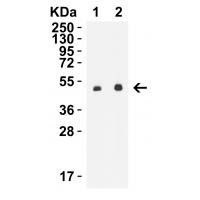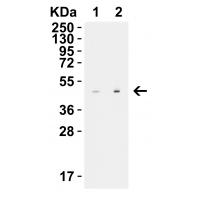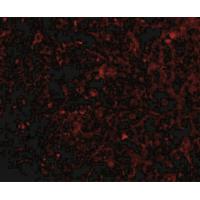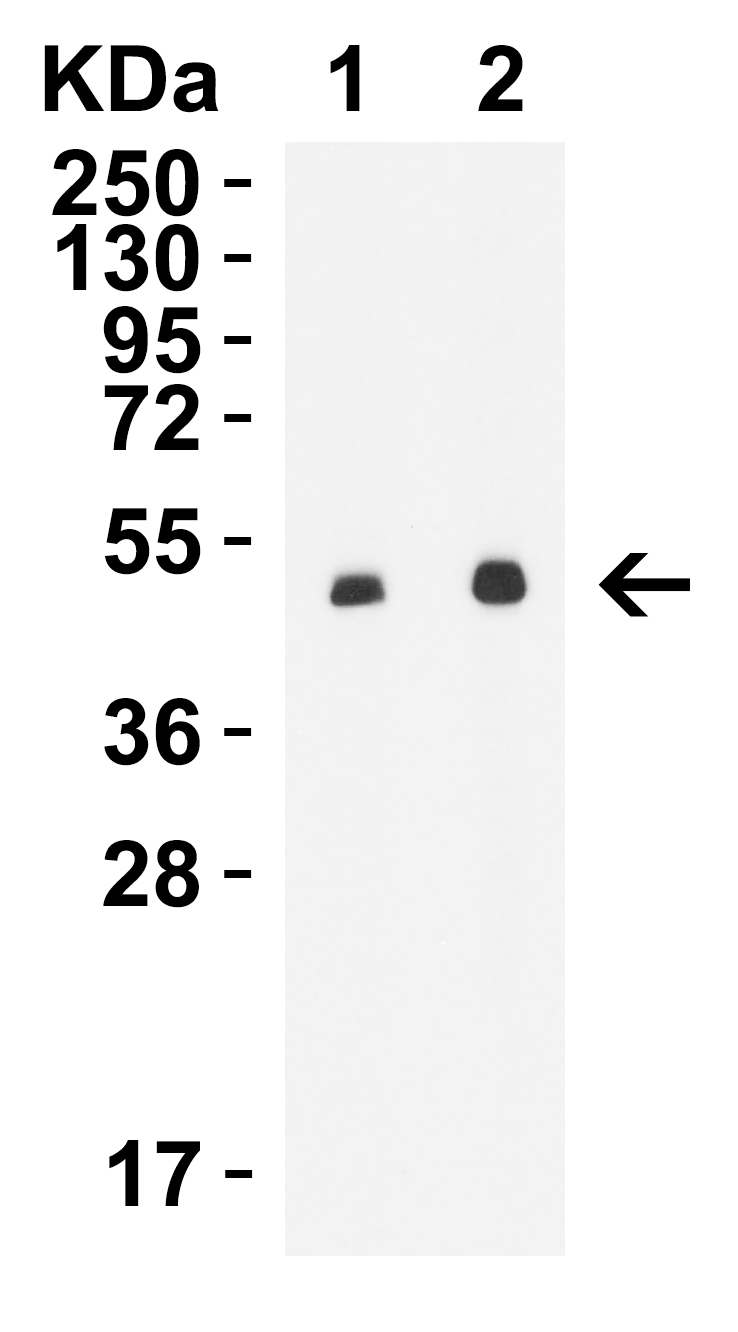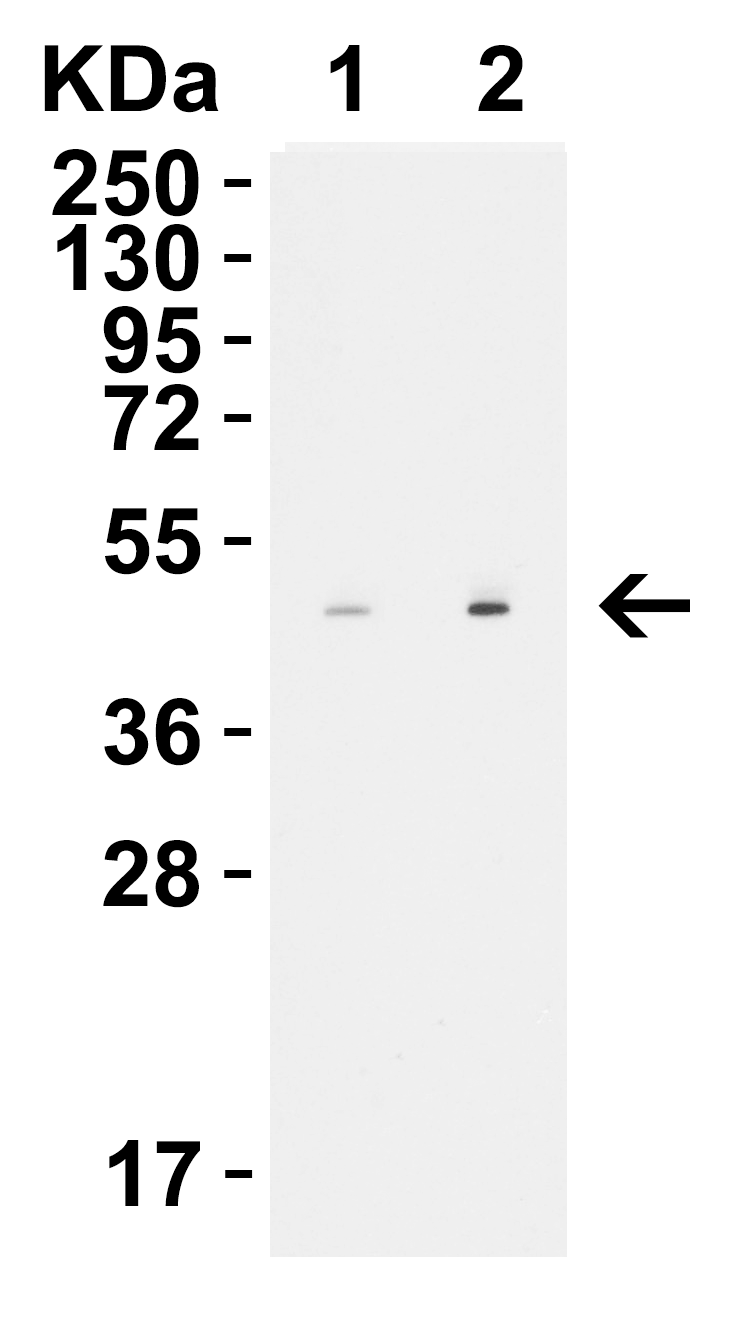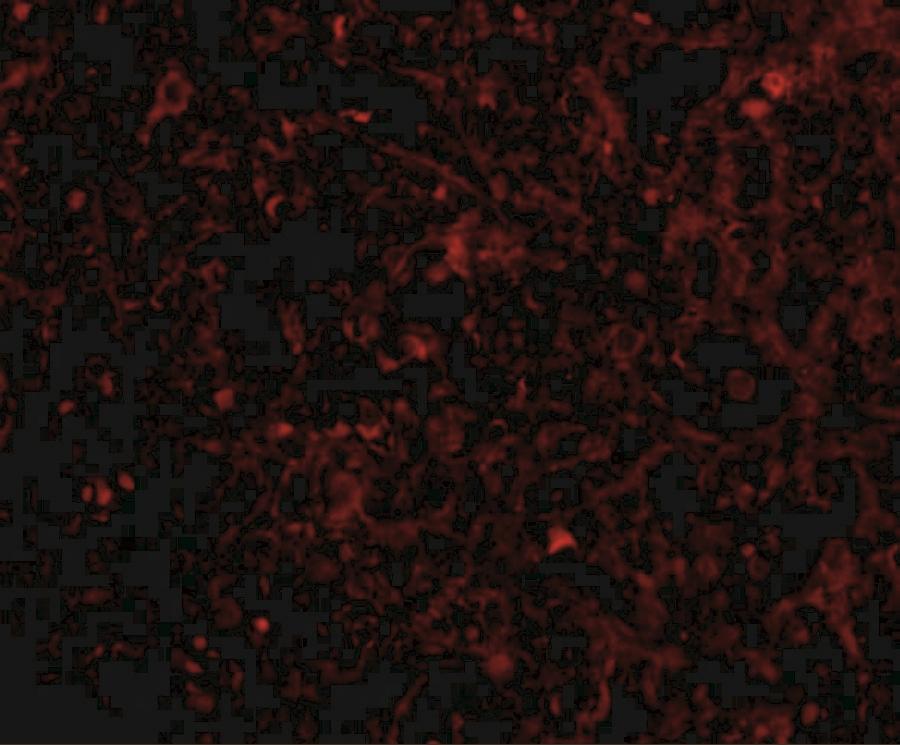The six-transmembrane epithelial antigen of prostate 1 (STEAP1) was the first member of a family of metalloreductases identified as cell-surface antigens in prostate tissue. The normal function of STEAP is still uncertain; unlike other members of the STEAP family, STEAP1 does not promote iron or copper reduction or uptake and lacks the FNO-like reductase domain critical for activity. However, its expression is highly increased in multiple cancer cell lines, including prostate, bladder, colon, and ovarian cancers. Supporting this is evidence that STEAP1 peptides can be used to stimulate CD8+ T cells from healthy donors, enabling them to recognize STEAP1-positive human tumor cells, suggesting that STEAP1 may a potential target for cancer immunotherapy. At least three isoforms of STEAP1 are known to exist.


